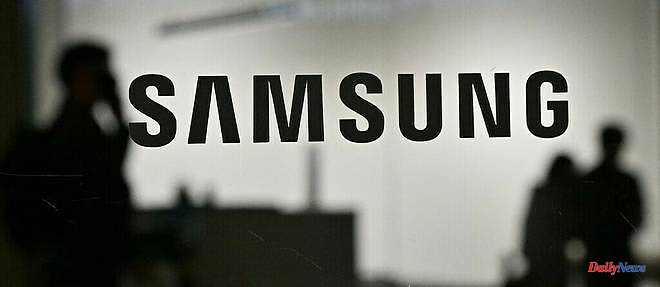Alarming results for Samsung Electronics. The South Korean tech giant announced on Thursday April 27 a plunge in its profits of more than 86% in the 1st quarter of 2023, the lowest in 14 years. To explain this trend, he cited the global economic slowdown which has hit sales of chips and electronic products.
Samsung reported that its operating profit for the January-March period fell 9.750 billion won (6.6 billion euros) from the same period a year earlier. They stood at 1.570 billion won (1.06 billion euros), against 11.320 billion over the same period last year (7.7 billion euros).
In early April, the group said it expected a steeper fall of 95.7% in the first quarter. But this drop remains the largest in 14 years. Samsung Electronics' net operating income plunged 95% from a year ago to 640 billion won (428 million euros). Sales fell 18% over the period, to 63.750 billion won (42.5 billion euros).
The company cited a drop in demand for microchips, which usually account for half of its profits, as well as a drop in their price. Samsung's chip arm suffered losses of 4.580 billion won (3.1 billion euros), its first net loss since 2009, when the world was just emerging from the financial crisis of 2008.
The tech giant, however, expects a "gradual recovery" in demand for semiconductors in the second half of the year, due to customer inventory declines and customer adjustment needs. Samsung Electronics is the flagship of the Samsung Group and by far its largest subsidiary. South Korean chipmakers, led by Samsung, had posted record profits in recent years, fueled by soaring prices, but the slowing global economy has put a damper on the sector.
Initially supported by electronics purchases during the pandemic, it then slowed, affected in particular by inflation and the rise in interest rates. Also in April, Samsung announced that it would "significantly" cut memory chip production to tackle the oversupply problem.












